AARP Hearing Center


Chapter Twenty-Eight
AS HE DROVE INLAND, TOWARDS THE moor and Spennicott, the village where Frank Ley was considered an enemy, Matthew Venn felt like a wicked schoolboy, bunking off school. As a child he would never have done such a thing, and might even have reported other kids who were behaving so badly. He’d been too scared of the world to be a rule-breaker. But today he could understand the joy, the freedom of running away from everyday responsibility.
The guilt, which was a backdrop to his life, added spice to the feeling of escape, the sense that he was on the verge of adventure. This was the place that Nigel Yeo had visited in the week that he was murdered, but Matthew couldn’t really justify the expedition. He could have sent one of his team or talked on the phone to the leader of the campaign to keep the care home open.
Spennicott was in a valley bottom; beyond it the hills began to rise into Exmoor and the heat haze. It wasn’t very far from the farm where Jonathan had lived with his adoptive parents. At first sight the village was unprepossessing: just one road with a narrow pavement on each side and a line of grey houses. There was nothing obvious here to attract tourists. No thatched cottages with roses round the door. No easy, picturesque footpath leading to the moors. The village centre was more appealing — a slow river was crossed by an ancient stone bridge and the garden of the pub led down to the bank — but Matthew could see why the place had needed Ley’s help to bring people in.
Although it was too early for lunch the pub car park was more than half full and a sign outside said it sold artisan coffee. One of the outbuildings had been turned into a shop and post office and there was a queue leading into the street. A woman came out with a basket of fresh vegetables — carrots with the green fronds still attached, courgettes and loose, ripe tomatoes — and climbed into a new four-by-four.
Venn went into the building and ordered coffee at the bar. ‘I’m looking for the old people’s home. Do you know where I can find it?’
‘The Mount? Past the school and then take the track on your right. It’s a bit overgrown. You might miss it.’ The voice was local, so Frank Ley had provided this man, at least, with a job. His was the only North Devon accent Venn heard when he was drinking his coffee, and Venn was the youngest customer. The others were older, early retirees on holiday, or second-homers escaping the city.
But, after all, what was wrong with that? Matthew thought. He was lucky to have been born here. Why shouldn’t other people enjoy the place and sustain the communities which might otherwise die? Still, he understood the permanent residents’ feeling that they’d been invaded and that a traditional way of life was under attack. Perhaps Jonathan had been right about the dangers of rural gentrification.
Matthew had decided to visit the care home before talking to Paul Reed, the writer leading the campaign against its closure. It would be good to understand what had led the man to such a violent reaction. He went back to the car and crossed the bridge. It was playtime in the school on the opposite bank, and through the open windows he heard children’s laughter.
The overgrown track led up a slight rise through woodland. Earlier in the year there would have been a pool of bluebells, and some of the dying blossoms remained under the trees. The drive ended in a gravel parking circle by the side of a large Victorian house, all gables and chimney pots. At the front of the building there was a paved terrace, where six elderly people were gathered with a carer in a blue uniform. Two of the residents were in wheelchairs and all wore white cotton hats to protect them from the sun. Now that he was here, Venn wasn’t sure what to do. He’d thought just to see the place, but his car had been noticed, and he didn’t feel he could just drive away. He got out and walked towards the group.
‘Hello, my dear!’ The woman in the wheelchair waved and shouted across at him. ‘What’s a handsome fellow like you doing here?’
He was still a little way from the terrace, taking a shortcut across overgrown grass, so didn’t feel the need to answer. Through open French windows leading onto the terrace, he saw a shabby lounge with a threadbare rug over scratched wooden floors and sagging armchairs. It would be hard to lever a frail elderly person out of one of those. There was the sound of a hoover from deep in the house.
The carer got to her feet to greet him. ‘If you’re considering the Mount as a home for a relative, I’m afraid we’re not taking any more residents just now.’
‘They’re trying to close us down,’ the woman in the wheelchair said, ‘but we’re not bloody having it.’
‘This is Viv Reed.’ The carer was laughing. He thought she probably laughed a lot. ‘She’s the Mount’s shop steward.’
‘Used to be a Labour councillor,’ Viv said. ‘And there weren’t so many of those around here. I’m still keeping up the fight. Along with my son Paul.’
‘He’s leading the campaign against the closure?’
‘He is!’ She sounded inordinately proud.
‘Won’t do no good, though.’ The speaker was a little, shrivelled man. ‘That Francis Ley will do just what he likes. Folks think he’s a saint, but it’s all about money with him.’
Venn thought that Steph Bull in the Patients Together office had said exactly the same about Nigel Yeo. He wondered if he’d got both men wrong. Had they somehow generated their own propaganda, cultivated the image of being good and generous men, while being as selfish as everyone else?
‘I’m not looking for a place for a relative,’ he said. ‘I’m a detective investigating the murder of Dr Nigel Yeo. I understand he came here last week? He was looking into the closure of the Mount.’
‘We heard that he was dead,’ Viv said. ‘We thought, That’s it. Our last hope gone.’
‘You had the impression that he was supporting your cause?’
‘He came for tea,’ Viv said. ‘He saw how happy we all were.’
Matthew thought that didn’t quite answer the question.
Before he could say anything more, the carer joined in the conversation. ‘The doctor talked about his wife,’ she said. ‘The early onset Alzheimer’s. He said that he’d been lucky enough to be able to care for her at home, and that she’d lived a full life, even when she was very ill. He said that everyone should have that right.’ A pause. ‘Unfortunately, we don’t have facilities to look after patients with severe dementia here. We couldn’t cope. I wonder if that might have influenced his impression of the home.’
There was a silence, broken by the call of woodpigeons in the trees in front of the house.
Venn turned back to Viv.
‘Was your son here when Dr Yeo visited?’
‘Of course he was here. He’d invited the doctor to visit.’
‘Did the doctor come back the following day? The Friday afternoon? Perhaps for another look? We’re trying to trace his movements on that day.’
The carer shook her head.
Venn left them then and walked back to the car. He wondered again what he would do if ever his mother couldn’t manage on her own. He was the only child and the responsibility would lie with him. Wouldn’t she be happier here, with the laughing carers and friendly residents, than in a clinical building with easily cleaned floors and specialist equipment? Perhaps she would, until the winter came and the roof started leaking and the bedrooms were cold at night. In the sunshine, it was easy to be romantic about such things, and besides, his mother had never been sociable, even when she was young.
***
Reed’s house was beyond the school, with a view of the river. It was a rather ugly villa, almost suburban, out of place in the rural setting. Venn had made an appointment and the man was waiting for him. He was unprepossessing too, a grey man in his fifties with strange hairy growths on his face, giving him the appearance of a weasel. His voice was educated, pedantic.
It was hard to believe that the joyous Viv had given birth to him.
This was clearly not a family home. There was no sign of children or a partner. The door opened onto a corridor, stacked on one side with bundles of newspapers and cardboard boxes, everything dusty. There was brown lino on the floor. Reed led him through to the back of the house, to what must have been intended as a dining room, but which was now a large, cluttered office. There was a view over an unkempt garden and the river, but the window faced north and the place was still dark.
‘A bit of an overreaction this, isn’t it? Sending a detective all the way from Barnstaple. As far as I know, I haven’t broken the law. As always, it seems to be one law for the rich and another for the rest of us. Francis Ley makes a complaint and I’m under investigation. He ruins the lives of a dozen elderly people and nothing happens.’
‘Mr Ley hasn’t made a complaint of any sort. I’m investigating the murder of Dr Nigel Yeo. We’re tracing his movements for the last week of his life. You did meet him on Thursday afternoon?’
‘Oh!’ Reed sounded deflated. It seemed he’d worked himself up for a battle only to be disappointed. ‘Yes.’
‘Can you explain how Dr Yeo came to be involved with your campaign?’ Venn paused. ‘I’ve been looking at the press you’ve generated. Very impressive. An article in the Observer. Even, I understand, a question in the House.’
‘That was all very well,’ Reed said, ‘but our publicity seemed to have little impact on Francis Ley. He was still determined to go ahead with the closure. I thought if I could get a group like Patients Together on board, someone official, Ley might start to take us seriously.’
‘This seems very personal,’ Venn said.
‘Of course it’s personal! It’s about my mother’s future.’
‘I visited the Mount before coming here. Your mother seems remarkably adaptable. I’m sure she’d settle perfectly well in another home.’ Venn paused for a moment. ‘I wondered if you had another reason for taking on Mr Ley.’
‘The decision to close the Mount was a final straw,’ Reed said. ‘He owns this village like some sort of feudal lord. We’re not in the Middle Ages.’
Venn thought that still didn’t quite explain the antipathy. ‘You’re a writer?’
‘Yes.’ Reed looked at Venn with suspicion. ‘A travel writer and essayist. I freelance for the press and I’ve had a couple of books published by mainstream houses. Not huge commercial successes, but well reviewed and the most recent won a rather prestigious award.’
Venn wasn’t quite sure where this was going.
‘In one of my articles for a Sunday paper, I explored the ethics of a wealthy man buying up a village, changing its character, excluding local people. Of course, Ley took exception to the piece. His lawyers claimed there were inaccuracies and threatened to sue. I would never have been able to fund a court case, so I was forced to make an apology.’ He paused. ‘It was humiliating.’
In those three words, Venn thought, lay the background to the campaign to keep open the Mount. Reed needed to show that he’d been right all along, that he was a downtrodden purveyor of truth. That Ley was a fat cat who cared nothing for the people of the village.
‘What did Dr Yeo make of the Mount?’ Matthew asked. ‘Did he support your view?’
‘I don’t know.’ Reed turned away. ‘I suspect he wouldn’t have had the guts to stand up to Ley. The man’s all-powerful and he seems to have everyone in his pocket. Planners, politicians, councillors.’
This was starting to sound like paranoia. Venn imagined Reed on his own here in the dark and dusty house, becoming obsessed with Ley, his wealth and his power. Brooding. Jealous. Resentful.
‘Dr Yeo didn’t feed back his impressions to you?’
‘No!’ Reed was still bitter. ‘He was pleasant enough when we were shown around the Mount. He engaged with the residents. He said he’d call in to see me here the following afternoon to give me his response.’
Venn thought that seemed beyond the call of duty. Perhaps Yeo had felt some sympathy for this sad, lonely little man and had wanted to let him down gently.
‘What happened?’
‘Nothing! I got a phone call on Friday cancelling the visit. Yeo was very apologetic. Apparently. And very melodramatic. A matter of life and death, he said, which was obviously an excuse.’
Venn could sense the conspiracy theories swirling around in the man’s mind, and moved towards the door.
‘Dr Yeo didn’t go into any more details about why he had to cancel his meeting with you?’
‘No,’ Reed said. ‘Yeo had gone through the motions, but clearly he wasn’t prepared to waste his time any further on me.’
Venn thought there was more to it than that. Something had happened after Yeo’s meeting in the hospital with Prior, Radley and Joshi to make him decide not to make the trip out to Spennicott. Something which might have led to his death.
Venn drove back across the bridge and parked by the pub. It was full now with people who’d come to take lunch. They were spilling out into the garden with their drinks. He phoned Lauren Miller.
‘Just a quick query. Nigel went to Spennicott to investigate a complaint about an old people’s home. Was that normally something he’d get involved in?’
‘No,’ she said, ‘but the whole case was so high profile, and the relationships had become so fraught, so venomous, that he thought a visit might take the heat out of the situation. Reed had made a formal complaint on behalf of the whole community.’
‘And of course, Nigel couldn’t be seen to be siding with Ley, who was his daughter’s landlord and benefactor, without taking the matter seriously.’
‘Well,’ Lauren said, ‘maybe there was something like that going on too.’


























































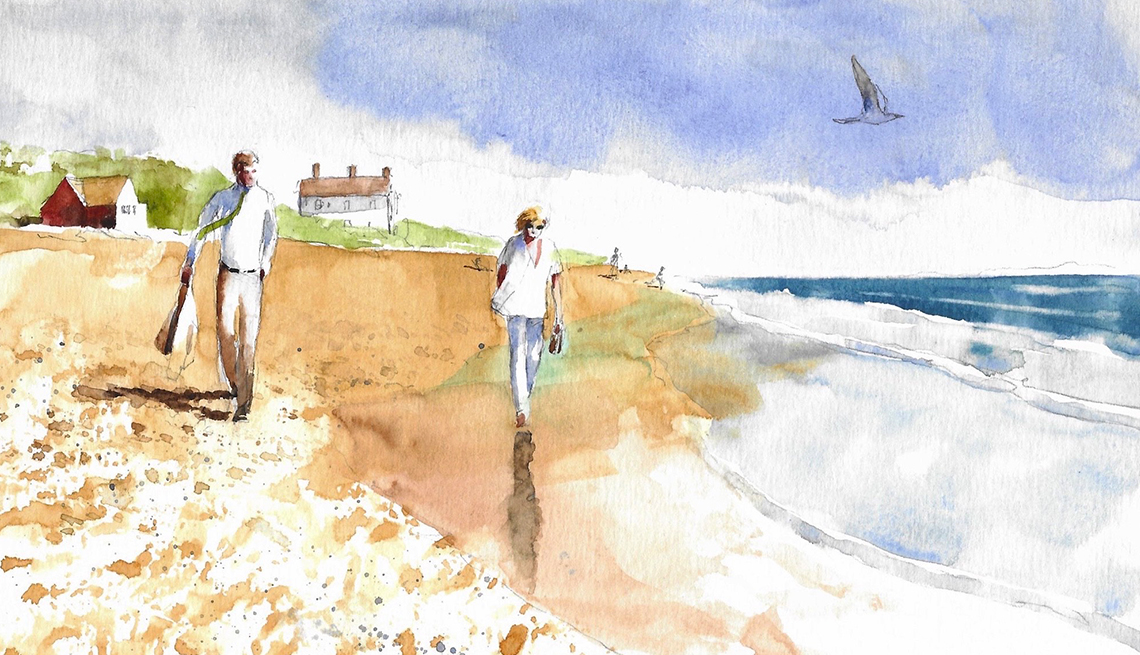
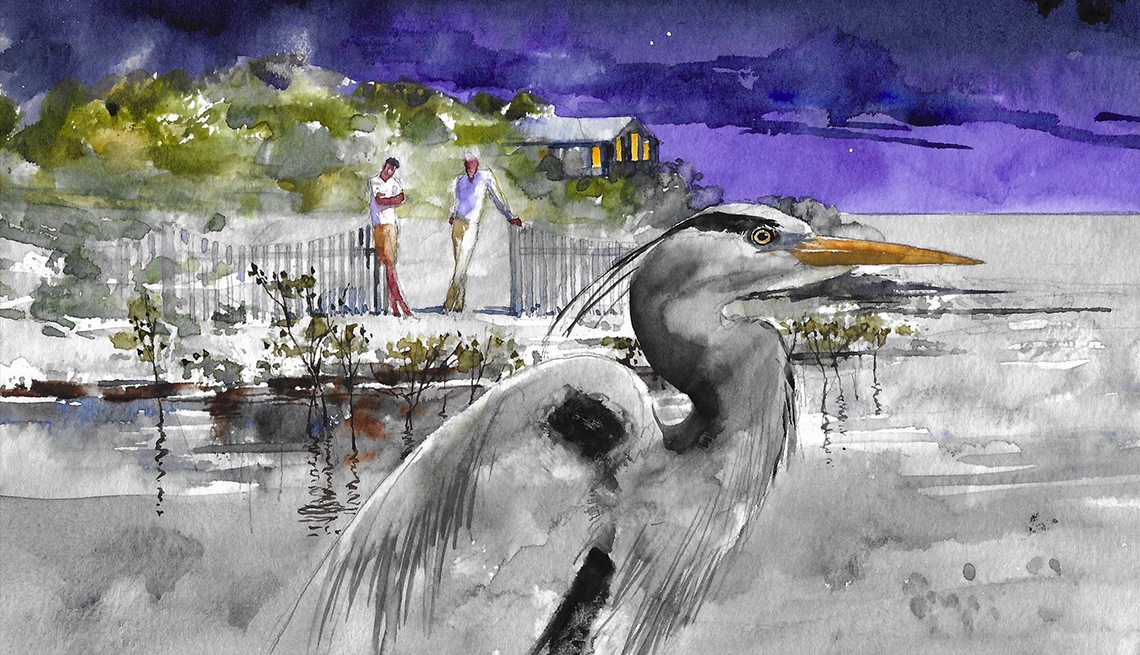
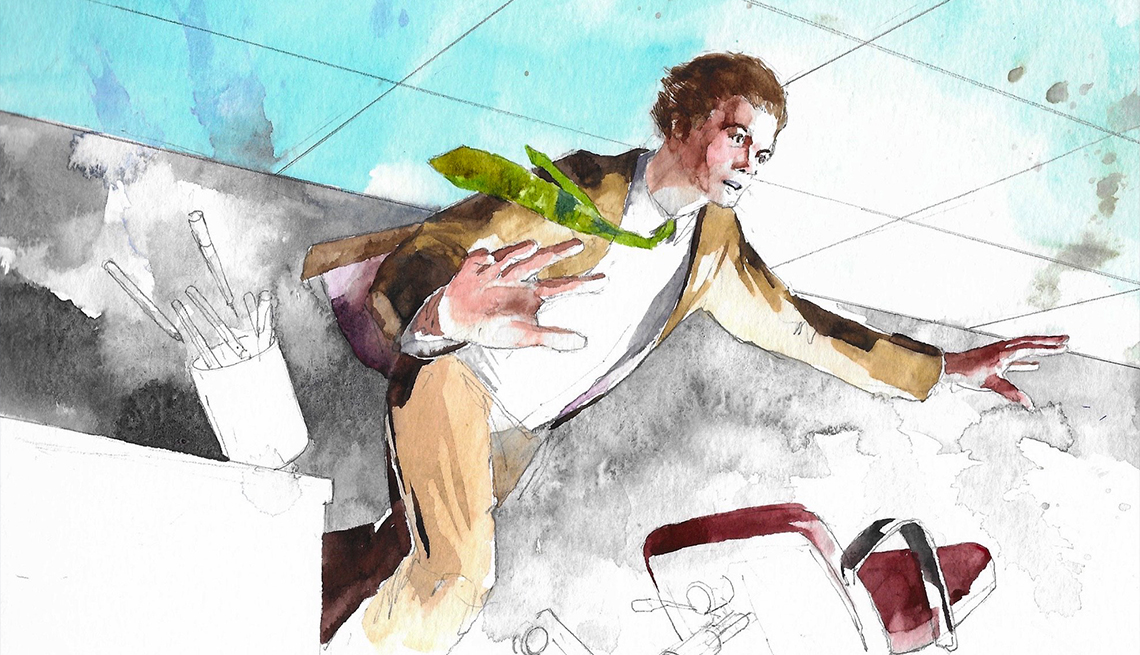
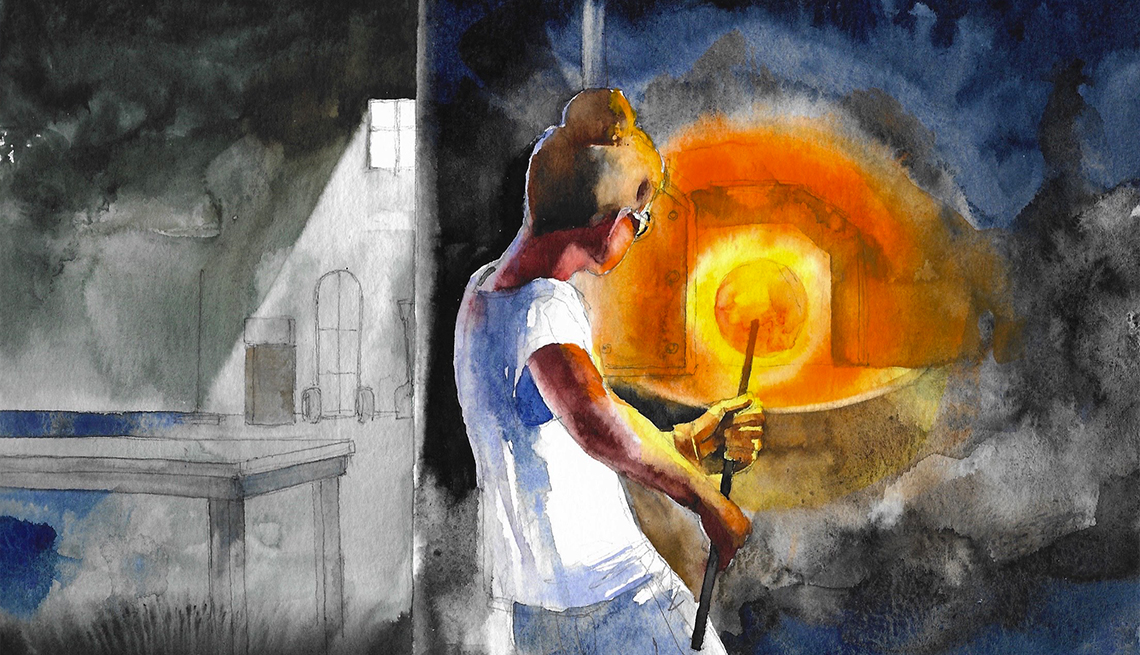
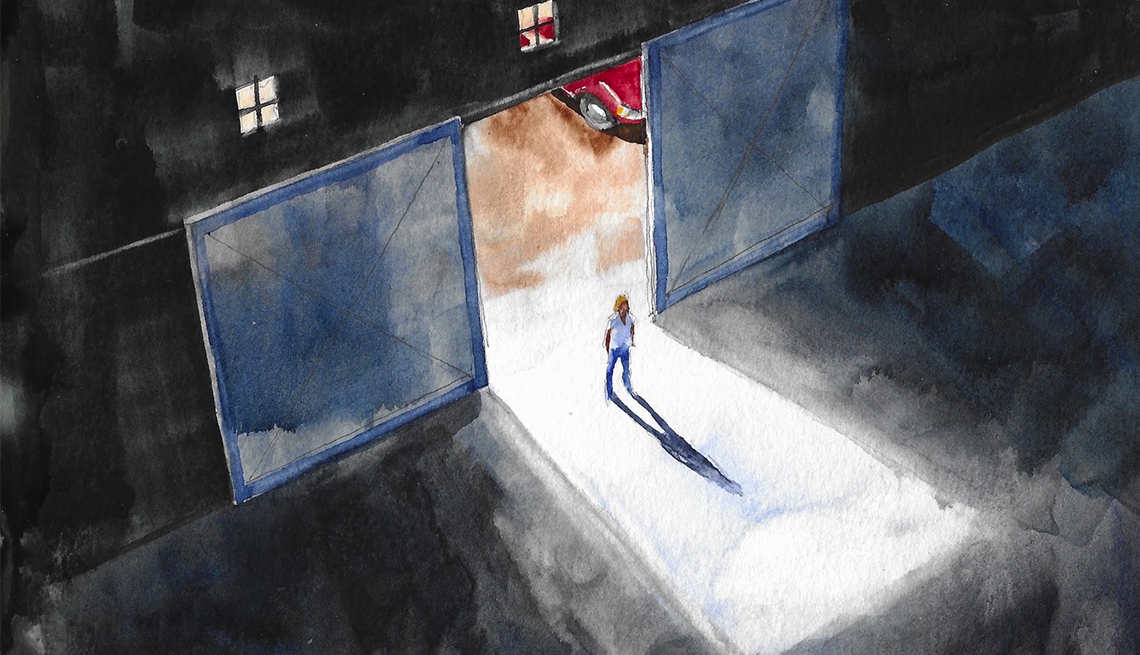
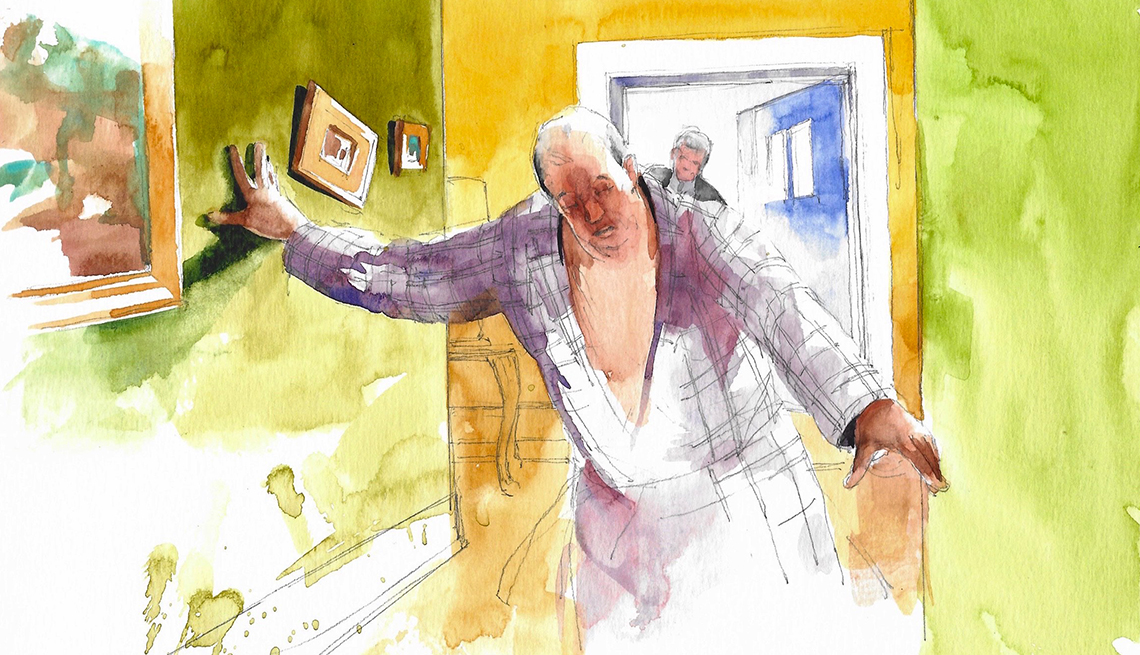
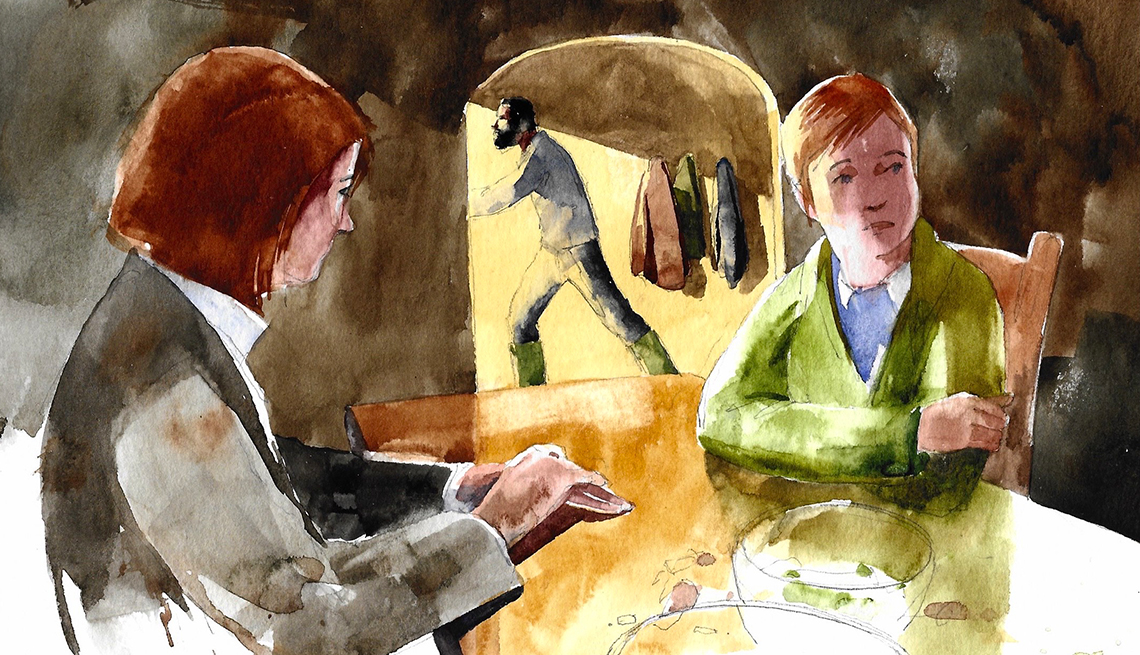
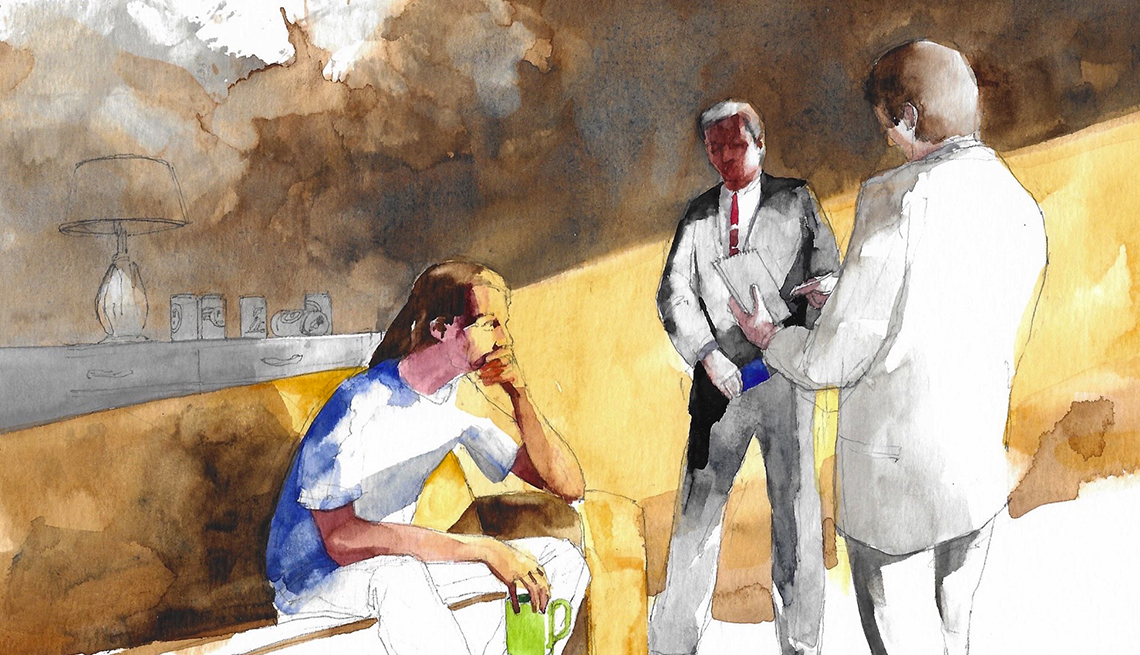
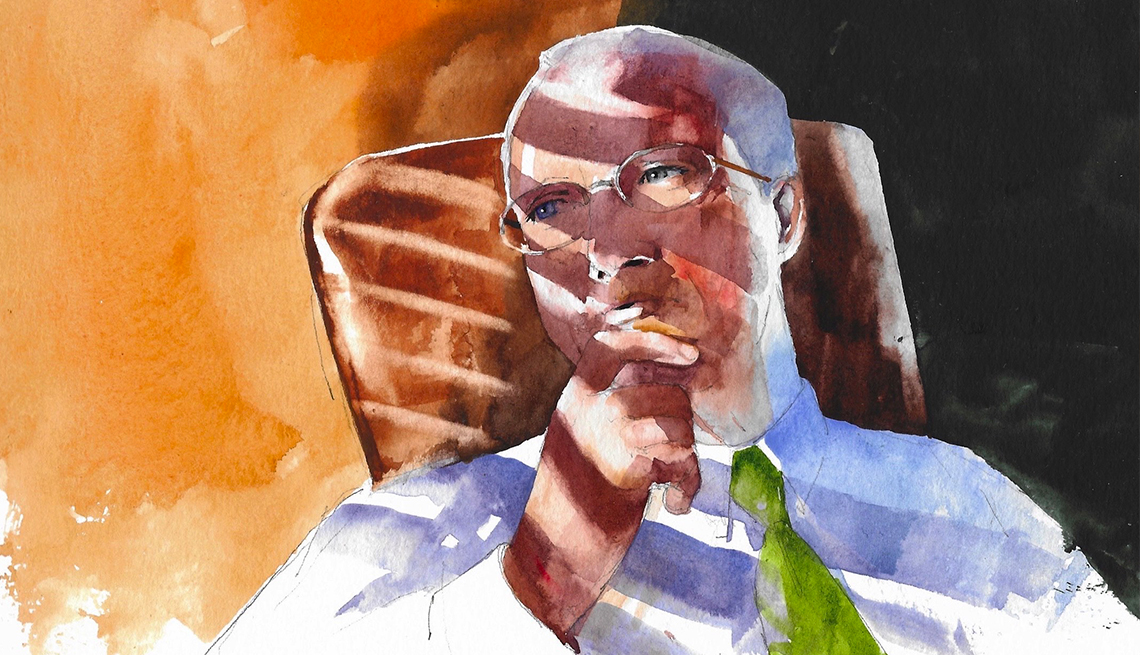
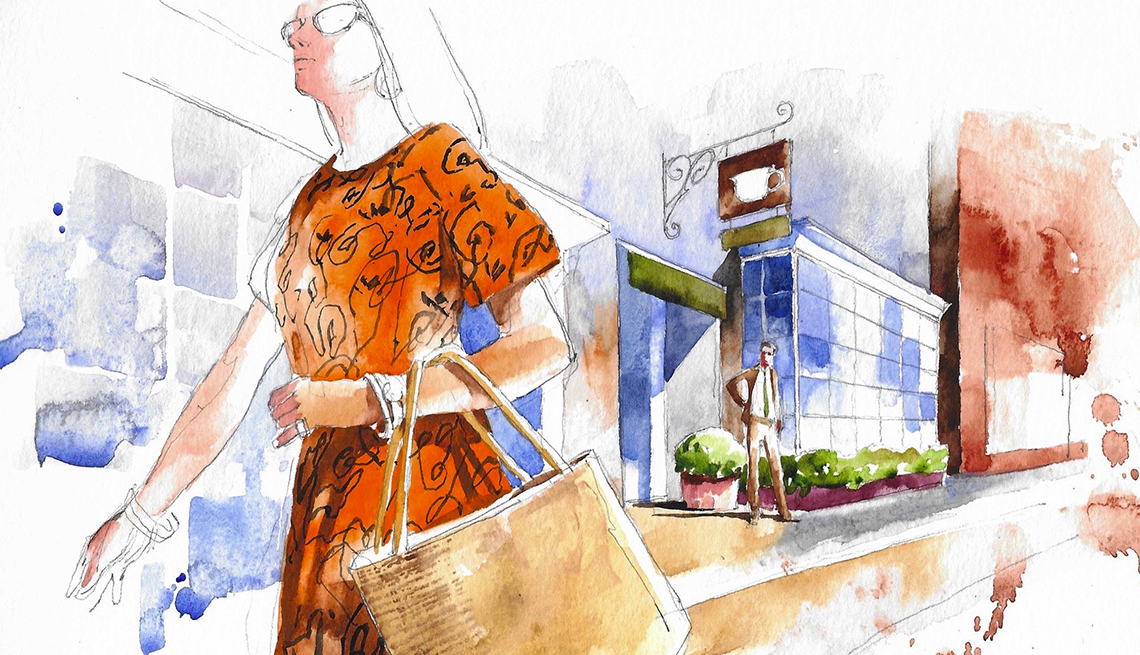
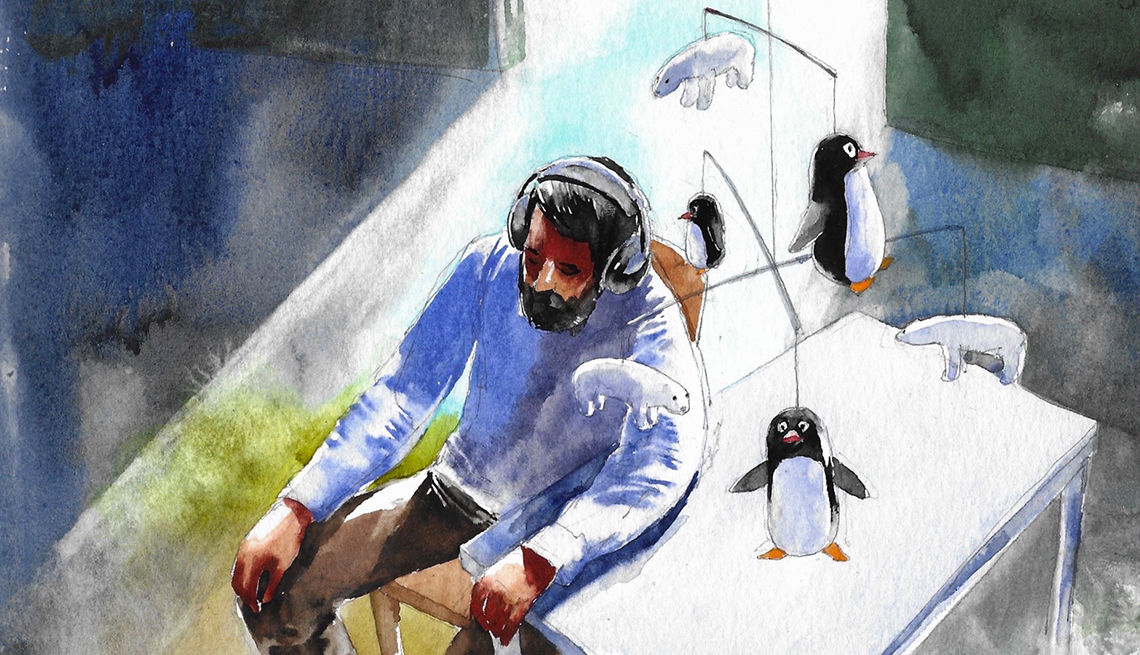
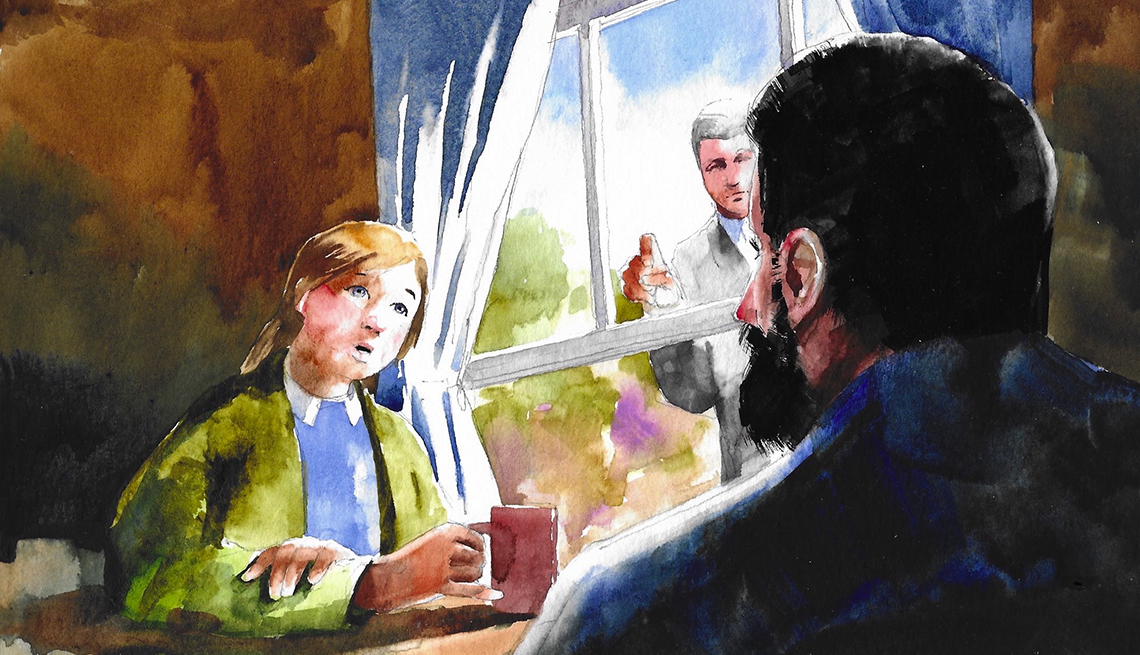
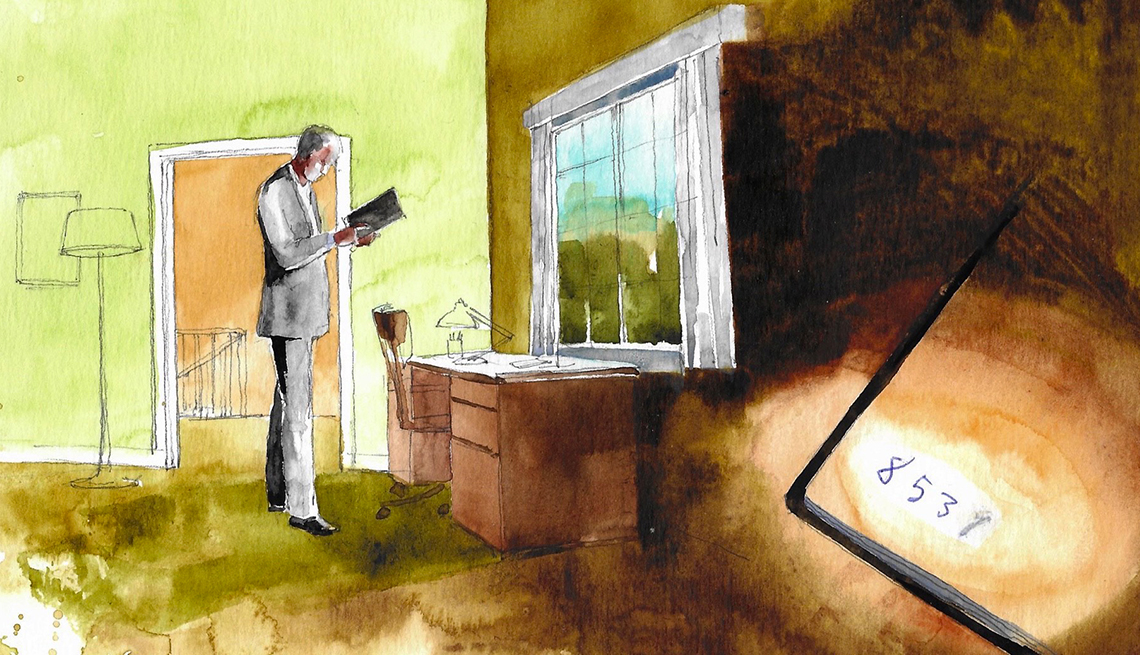
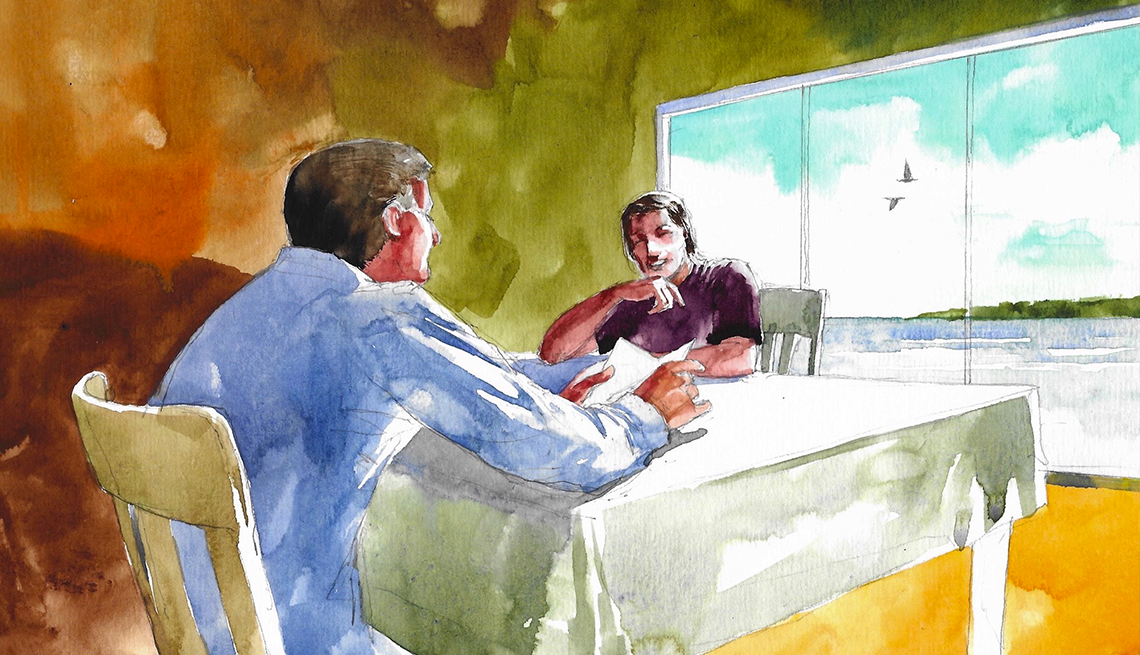
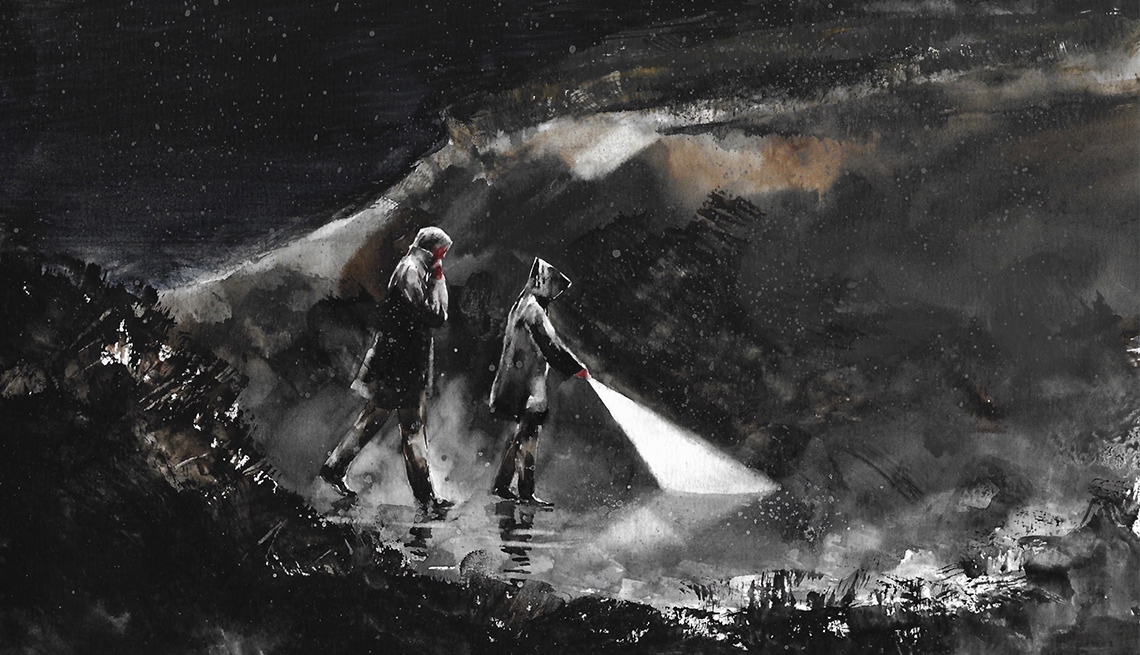
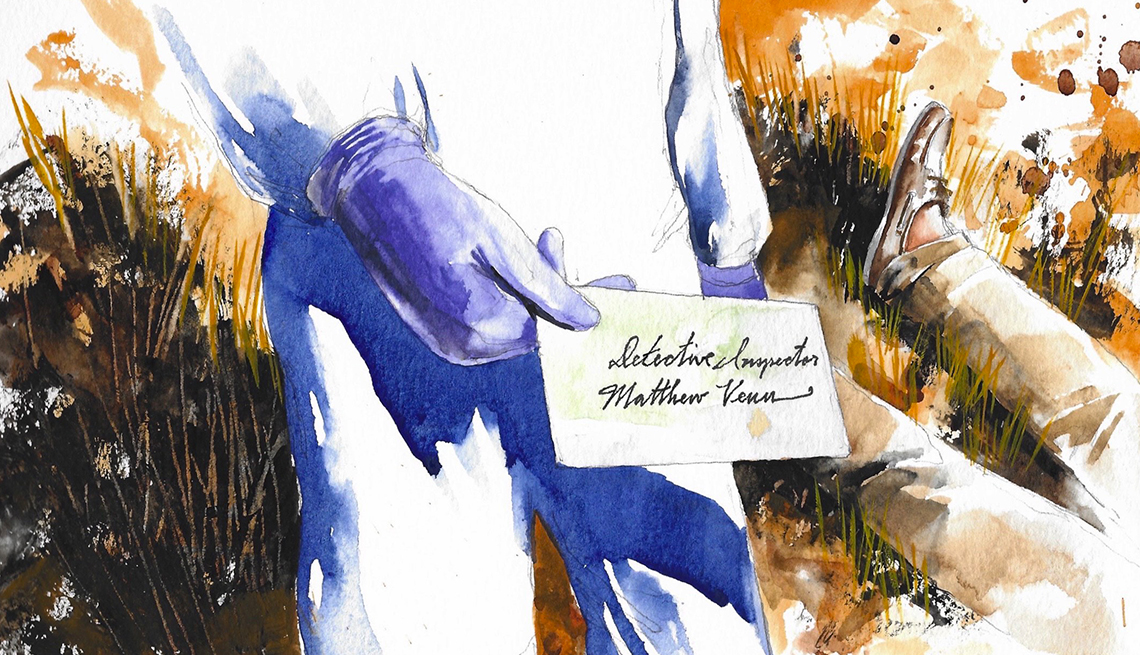
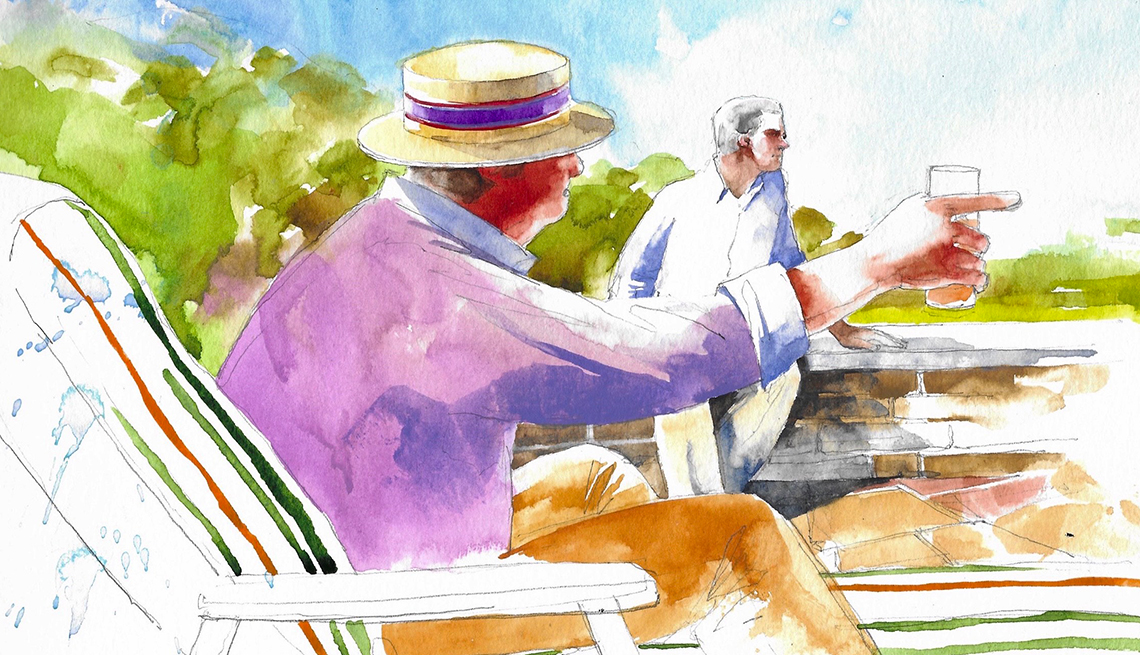



More From AARP
Free Books Online for Your Reading Pleasure
Gripping mysteries and other novels by popular authors available in their entirety for AARP members